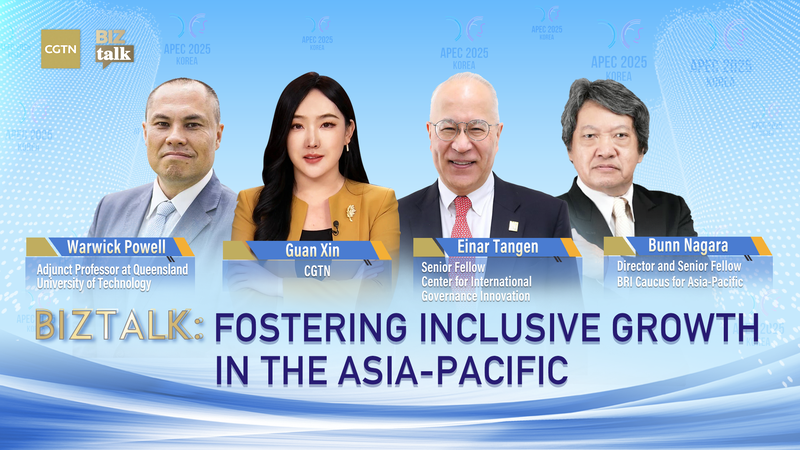As the 2025 APEC meetings concluded earlier this month, CGTN's Guan Xin sat down with Warwick Powell, adjunct professor at Queensland University of Technology; Einar Tangen, senior fellow at the Center for International Governance Innovation; and Bunn Nagara, director and senior fellow of the BRI Caucus for Asia-Pacific, to unpack the summit's economic outcomes and chart a course for a more resilient regional future.
Powell highlighted the rise of digital trade platforms as a game-changer for small and medium enterprises across APEC members. 'Expanding cross-border e-commerce and harmonizing regulations can unlock new markets for startups,' he explained, citing recent data showing a 15% uptick in online exports among emerging economies this year.
Tangen focused on governance and supply-chain resilience, emphasizing collaboration on green technology standards. 'Investing in clean energy infrastructure and transparent procurement processes strengthens regional ties and mitigates future disruptions,' he noted, pointing to pilot projects in renewable energy hubs throughout Southeast Asia.
Nagara underscored the role of inclusive infrastructure financing under the Belt and Road framework. 'Blended finance models and community-driven projects ensure local stakeholders benefit directly,' he said, referencing initiatives that have supported rural connectivity and sustainable tourism in Pacific island members.
Together, the experts charted a multi-pronged roadmap: accelerating digital inclusion, aligning sustainability goals, and fostering public-private partnerships to drive equitable prosperity. As APEC 2025 sets the stage for deeper cooperation, entrepreneurs, policymakers, and changemakers have clear pathways to shape an Asia-Pacific economy that works for all.
Reference(s):
APEC insights — Fostering inclusive growth in the Asia-Pacific
cgtn.com




